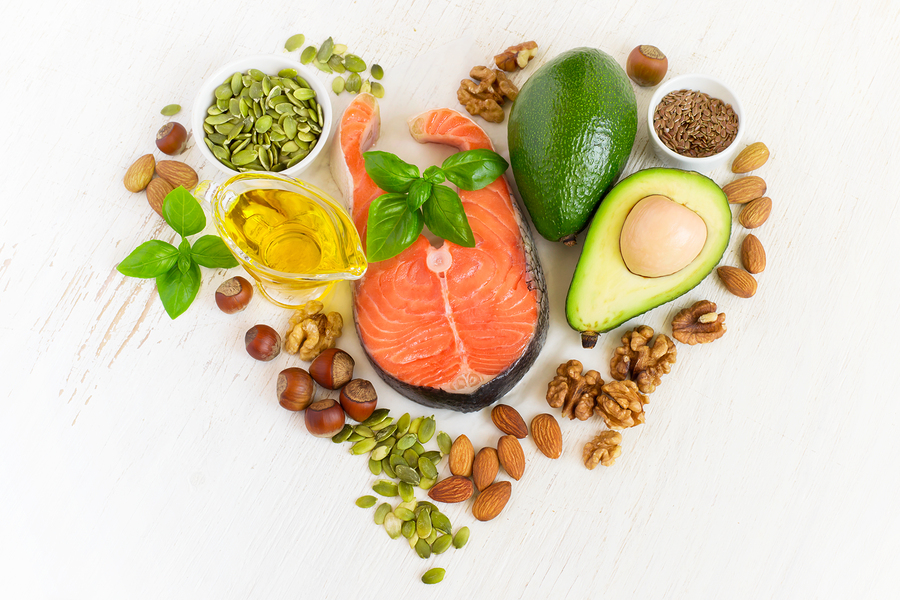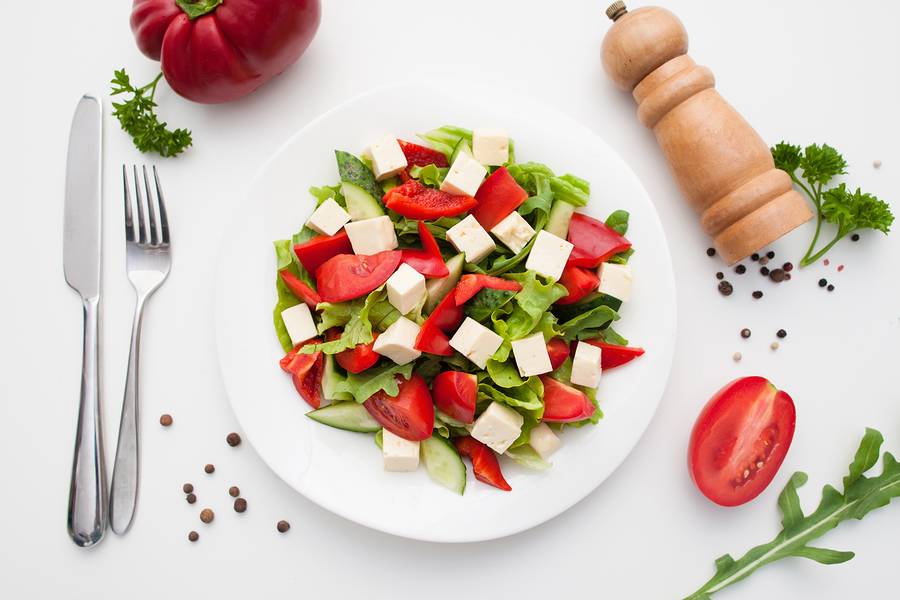- Make It Yourself Lavender Heart-Shaped Bath Bombs!
- 20 Things You Never Knew About “Down There”
- 12 Best Foods For Those Suffering From Arthritis Pain
- 12 Personal Hygiene Mistakes Almost Everyone Makes (Mom Never Told You About #4!)
- 15 Medicinal Plants And Herbs From The Cherokee People
- 12 Mind-Blowing Benefits Of Drinking Coconut Water During Pregnancy
- 12 Outstanding Winter Foods That Won’t Fatten You Up Like A Christmas Turkey
The Mediterranean Diet Cuts The Overall Cancer Risk
What is the Mediterranean Diet?
The Mediterranean diet follows the basics of healthy eating, with just one or two variations. It includes a high intake of plant-based proteins such as nuts, lentils, beans and whole grains. Fatty fish, and other good fats such as olive oil, are also included.
The cooking methods are characterised by the traditional style of the countries bordering the Mediterranean Sea.
Eating more vegetables, fruits, whole grains, beans and nuts, is the central key to this diet, and it makes no difference which specific foods you choose. How you flavour your food, or what spices you choose, is also your choice.
The diet demands a low intake of refined foods such as white bread, rolls, white rice, etc, as well as sugary items, and red meat.
RELATED: What Sets The Mediterranean Diet Apart From The Rest?
Does the Mediterranean diet lower your risk of cancer?
Several intensive studies have linked the Mediterranean style of eating to a lower all-round cancer risk.
A major new research project funded by the World Cancer Research Fund, published some interesting results regarding breast cancer. The study indicated that that those who closely followed the Mediterranean diet had a 40 percent reduced risk of breast cancer. The results were particularly successful in the case of estrogen-receptor negative cancers, which means that estrogen, and not progesterone, is supporting the growth and spread of cancer cells.
Studies further showed that breast cancer is one of the most common cancers worldwide, with the UK alone reporting more than 53,000 new cases each year.
According to further studies, it was revealed that the risk of prostate cancer may also be lowered by 30% when following a Mediterranean style eating plan. It was noted that Greek men have a very low risk for prostate cancer, while prostate cancer is the second highest cause of cancer deaths among American men.
The consensus among researchers is that the Mediterranean diet plays a major role in reducing the risk of several cancers, and is especially useful in preventing dangerous breast and prostate cancers.
Continue to Page 2
What about heart health?
The Mediterranean diet reduces the risk of heart disease. According to research studies, the diet has been associated with lowering the level of LDL, the bad cholesterol, which is prone to build up in the arteries.
Many of the foods recommended for the diet contain polyphenols, which are micronutrients loaded with antioxidants that fight dangerous free radicals in the body. These micronutrients also help to improve circulation, and reduce the chances of cardiovascular disease by cutting down inflammation in the arteries.
In addition to heart health benefits, the Mediterranean diet is also associated with the treatment of digestion issues, and diabetes.
KEEP READING: Heart Healthy Foods That Really Satisfy!
Some of the best foods to include in your Mediterranean diet
- Olive oil is the primary source of healthy, unsaturated fat and contains linolenic acid (omega 3) which protects the heart and prevents dangerous blood clots which can be fatal.
- Fish such as mackerel, tuna and salmon are also rich in omega 3 which keeps the blood vessels healthy. Eating fish twice a week would be good.
- Fresh fruits and vegetables which are high in antioxidants, help to combat the devastating effects of free radicals in the body. Fruits like apples, apricots, berries and oranges, as well as veggies such as avocados, broccoli, cabbage and spinach, are loaded with vitamin A, all the B’s, and vitamin C, all of which have proven anti-cancer properties.
- Keep nuts handy if you want a quick snack. The unsaturated fats and omega 3 in nuts is good for heart health.
- Legumes, including beans, peas, and lentils, are low in saturated fats, but high in calcium, B vitamins, and antioxidants.
- Substitute poultry for red meat, bacon and sausage, wherever possible.
- Opt for low fat dairy, and go for skim milk, fat-free yogurt, and fat-reduced cheese.
- Try using herbs and spices instead of salt to make food tasty.
- A moderate use of red wine is also suggested, as it is good for the digestion, as well as cardiovascular health. However, if you do not take alcohol, it won’t make the diet any less effective.
Without exception, these recommended foods (and there are others) have fantastic health benefits for the body, especially for reducing the risk of cancer, and keeping the heart and cardiovascular system healthy.
Continue to Page 3
Photo credit: bigstockphoto.com
Not just a diet
The Mediterranean diet is a way of life, and not just a temporary way of eating. The word diet comes from the Greek word diata, which means “a way of life.”
Therefore, if you change your diet, you are effectively changing your way of life. If you embrace the Mediterranean diet, make it a permanent lifestyle change, to get the best possible benefits for your health and well-being.
The Mediterranean style of eating is delicious and healthy, and you can always ramp it up with a glass of red wine if you want. Once you get used to this way of eating, you will never want to eat any other way.
RELATED: Everything You Need To Know About The Nordic Diet
What about the Nordic diet?
The Mediterranean diet and the Nordic diet are quite similar in approaches. They both advocate plenty of fruit and vegetables, and the limitation of refined flour and sugary items. Both offer the lower cancer risk, as well as heart health protection factors.
The main difference between the two diets is that while the Mediterranean diet is olive oil based, the Nordic diet is generally based on the use of canola oil. Both oils have their merits, with health experts leaning slightly towards olive oil.
The Nordic diet is generally followed by Scandinavian folk, while the Mediterranean style of eating is popular among people living along the Mediterranean coast, in countries like Greece and Italy.
But no matter where you live, you can follow either of the diets with confidence that your health and well-being will be boosted.
References:



































